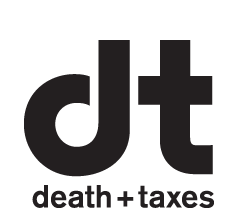News
Chrysler “Tea Party” Commercial’s Real Problem? Ownership.
Andrew Belonsky :: Wednesday, July 7th, 2010 10:15 am
For better or worse, the Tea Party has become a part of our American family. And as a member of the American family, these rabble rousers represent a new demographic for executives looking to make a buck, which explains why Chrysler recently unveiled a series of commercials playing up the company’s patriotic chops.
In one, George Washington’s army chases a British red coat with new Dodge Challenger Freedoms, while the announcer, Dexter actor Michael C. Hall, proclaims, “Here’s a couple of things America got right: Cars — and freedom.”
Yet another Chrysler production, this one for the company’s famed Jeep, insists that “The things that make us Americans are the things we make,” before explaining, “As a people, we do well when we make good things, and not so well when we don’t.” That’s why the new Jeep was made with love, care and with you in mind, of course.
A number of people have pointed out that Chrysler’s ads reek of apology. The company did, after all, take $7 billion in government bailouts only to declare bankruptcy. The Tea Party hates that kind of thing, and this ad may be nothing but a publicity stunt wrapped in a marketing campaign. Chrysler won’t say whether they’re trying to win back political enemies, although a spokesman did concede that the costumes in the George Washington commercial came from an old Mel Gibson movie. Perhaps The Patriot?
Yes, the Tea Party has officially arrived. But even if Chrysler doesn’t have political designs, these advertisements manufacture an identity crisis for the Tea Party set.
Tea Party activists have long claimed that they will not be co-opted by the Republican Party. They are going to stick by their guns and change the party from within. Though key candidates, like the new-and-less-extreme Sharon Angle, suggest otherwise, it was always inevitable, no matter how hard they resisted, that the Party would find itself reflected in consumerist culture.
Advertising always follows cultural trends, and market researcher J. Walker Smith described today’s sentiment as “consumer outrage.” “People who are closely identified with the tea party movement feel very much this sense of betrayal,” he told Washington Post journalist Amy Gardner. “They feel very much betrayed by a lot of the institutions and people they have invested their trust in. This creates a situation for a lot of companies as they try to navigate how best to appeal to consumers in this environment.” He’s quick to point out that this outrage isn’t only only the right.
Still, the Tea Party does represent an interesting demographic, especially for car companies. “Its demographic — older, more conservative Americans — overlaps with a significant segment of Chrysler’s traditional customer base,” she writes “Many of those potential buyers were not pleased that the Detroit automaker received more than $7 billion in federal bailout money last year. Anger about the bailouts is a favorite tea party topic.
More than that, these people are likely to be more brand loyal, being older, and advertisers, as in politics, want you to either vote for them or against the other guy. This Chrysler ad may very well be “political marketing” in reverse: it’s marketing the political.
The Tea Party lives and breathes the free market. Having big, successful corporations woo them may make them feel like the belle of the ball. Of course marketing — again, as with politics — comes with unseen strings, and the bailout isn’t the most troublesome political pitfall facing Tea Partiers in need of a new truck.
As capitalist sympathizers, Tea Partiers and their ideological peers understand that business men and women need to do what they can to survive, and the company just recently added 1,000 jobs, showing it’s committed to helping Americans get to where they need to go in life. But that argument overlooks the fact that Chrysler, after taking tax payers’ money, sold 20% of itself to Italian company Fiat, while the United Auto Workers received about two-thirds, the government just under 10% and the Government of Canada received a little below 3%.
Broken down like this, Chrysler doesn’t represent the Tea Party’s Washington; it represents their nightmare: a company run by the federal government, a foreign government, a foreign company and a “socialist” union. And it will take billions on advertising dough to gloss over that checkered political background.

